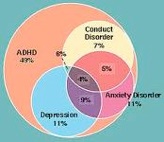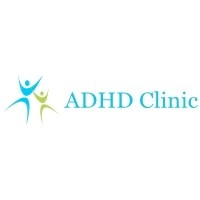Frequently Asked Questions


What is ADD and ADHD?
There are three types of ADHD. They include Attention-Deficit Hyperactivity Disorder, Predominantly Hyperactive, Predominantly Inattentive, and Combined. The hyperactive type is commonly referred to as ADHD and the inattentive type is often referred to as ADD. “ADHD” is the term most often used when referring to any of the three types. ADHD is a neurogenetic condition that effects the executive functions of the brain.
Is there a cure and/or how do you treat it?
To date there is no known cure, however, effective treatments include medications, counseling, developing coping skills, educating yourself and others, and having a positive attitude.
Can Diet Help People with ADHD?
Yes. Avoiding too much sugar can help their minds be less scattered and to help minimize excessive bursts of energy followed by “sugar crashes.” On the other hand, sipping on a sugary drink while studying can help keep blood glucose levels high enough to stay engaged while studying. Eating a high protein diet can help their energy, mood, and concentration levels to be more stabilized throughout the day. Caffeine will actually help them to be more alert, focused, and calm. This is because stimulants have a counterintuitive effect on people with ADHD. You would normally think that caffeine would make a hyperactive child with ADHD more hyper, but actually the opposite is true. Evidently, once the brain chemicals are sufficiently stimulated, there is increased focus and the result is a more calm child who is able to attend and learn. The same principle applies in understanding why stimulant medications are so helpful in treating ADHD. Exercise and adequate sleep are also critical parts of a good treatment plan.
How do you diagnose ADHD?
The American Psychiatric Association’s Diagnostic & Statistical Manual V (DSM-V) has a set of criteria that must be met (See ADHD Symptoms). Health care professionals often obtain information from the client, parents, teachers etc. Several possible alternative causes of inattention or hyperactivity such as anxiety or depression must first be ruled out.
How are people with ADHD Effected?
ADHD effects people socially, emotionally, and mentally. It effects their whole life really- from keeping on task, to talking with a friend, to taking notes or even reading. More than just the primary effects of the condition, however, there are secondary effects which often damage self esteem. These secondary emotional effects occur when the people with ADHD are misunderstood, picked on, bullied, or labeled as being “dumb”, lazy, troublemakers etc. And sometimes, self-fulfilling prophecies occur when children with ADHD believe the myths and labels people tell them, which leads them to become what they believe about themselves.
How do I help my son or daughter who might have ADHD?
The first thing is to get them a professional ADHD evaluation by someone who is familiar with the complexity of diagnosing ADHD. Secondly, it is important to tailor make a treatment program for their unique needs.
Why is a Professional Evaluation for ADHD Essential?
First, ADHD has three possible types: ADHD Hyperactive, ADHD Inattentive, and ADHD Combined. It is essential to know which type best describes one’s symptomologies.
Second, ADHD can share the symptomologies of several other mental health disorders such as anxiety, depression, conduct disorder, etc.
Third, ADHD can be part of a comorbid diagnosis such as anxiety and ADHD, depression and ADHD, dyslexia and ADHD, etc.
Fourth, ADHD as a formal diagnosis entitles a student for academic accommodations in both public schools and universities. Such accommodations can be critical in a student’s learning success.
Fifth, ADHD as a formal diagnosis will aid the medical doctor in choosing the most appropriate medication.
Sixth, ADHD as a formal diagnosis will also identify the coping skills that must be mastered for success in life.
Seventh, often individuals in whom ADHD has not been properly diagnosed, struggle with self-esteem issues. This happens because the symptoms of inattention and hyperactivity are often incorrectly labeled as laziness, insufficient motivation, or low intelligence.
Eighth, ADHD in adults has been shown to significantly impact relationships in marriage, socially, and in the work place.
Ninth, Children and Adolescents with undiagnosed/untreated ADHD are more prone to self-medicate with illegal drugs, not complete high school, not reach their mental potential, have more accidents, and have disruptive behaviors.
Lastly, a proper ADHD evaluation can help the individual understand and appreciate the unique positive benefits such as creativity, imagination, flexibility, enthusiasm, energy, and optimism.
How Will Professional Treatment For ADHD Help?
-
1)Learn appropriate and specific coping skills
-
2)Learn how to have good self-esteem
-
3)Involve the School/University in Academic Accommodations
-
4)Learn to be aware of implications i.e., social, academic, vocational etc.
The additional questions and answers below are direct quotes from the National Institute of Mental Health’s website: www.nimh.nih.gov
Attention Deficit Hyperactivity Disorder
Frequently asked questions about ADHD and teenagers.
Q: What is ADHD?
A: Attention Deficit Hyperactivity Disorder (ADHD) is a term used to describe a group of behaviors that most often appear in young, school-aged children.
Q: What are the symptoms of ADHD?
A: ADHD has a wide range of symptoms and it can be confusing and stressful for the child or teen. Young people mature at different rates and have different personalities, temperaments, and energy levels. Most of us get distracted, act impulsively, and struggle to pay attention at one time or another. It is when symptoms such as these, or acting in impulsive or reckless ways, daydreaming , becoming easily confused, or trouble sitting still for any length of time are hurting school work or impairing social activities that ADHD should be looked into.
Q: How is ADHD diagnosed?
A: Most ADHD symptoms usually appear early in life, often between the ages of 3 and 6. No single test can diagnose ADHD, but a licensed health professional such as a pediatrician or mental health specialist with experience in childhood mental disorders can first try to rule out other reasons for the symptoms.
Q: What causes ADHD?
A: Scientists are not sure what causes ADHD, although many studies suggest that genes (the “blueprints” for who we are) play a large role. Like many other illnesses, ADHD probably results from a combination of genetic and environmental factors such as nutrition, brain injuries, or social environment.
Q: Can a teenager have ADHD?
A: Most children with ADHD continue to have symptoms as they enter adolescence. Some may not be diagnosed until then. It’s not easy being a teenager, but for a teenager with ADHD, it can be especially hard. Staying with the recommended treatments, prescribed medications, psychosocial interventions, or a combination of the two, is also a challenge. Since inattention can be a problem, driving is another major concern for those with ADHD. Working cooperatively with parents, schools, and health care professionals is key.
Q: How is ADHD treated?
A: Available treatments focus on reducing the symptoms of ADHD and improving functioning. A one-size-fits-all treatment does not exist and sometimes several different medications or dosages must be tried before finding one that works for a specific person. Anyone taking medications must be closely watched by their doctors. Parents and doctors need to work together to decide which medication is best, if the young person needs medication only for school hours or also for evenings and weekends, and also what psychosocial interventions are best for that individual.
Q: What can be done if you or your friend has ADHD?
A: First you need to help reduce the stress caused by the frustration that is experienced with these conditions. It is best for you or your friend to work with your family and a team of health professionals to find the best treatments.
Q: Once diagnosed, what is there to do about it?
A: With the right kind of help, most children and teens with ADHD can usually improve dramatically.
Q: Where can I get more information?
A: Knowledge in genetics, brain imaging, and behavioral research is leading to a better understanding of the causes of the disorder, how to prevent it, and how to develop more effective treatments for all age groups. NIMH has studied ADHD treatments for pre-school and school-aged children in a large –scale, long term studies. NIMH-sponsored scientists are continuing to look for the biological basis of ADHD and how differences in genes and brain structures may combine with life experiences to produce the disorder.



